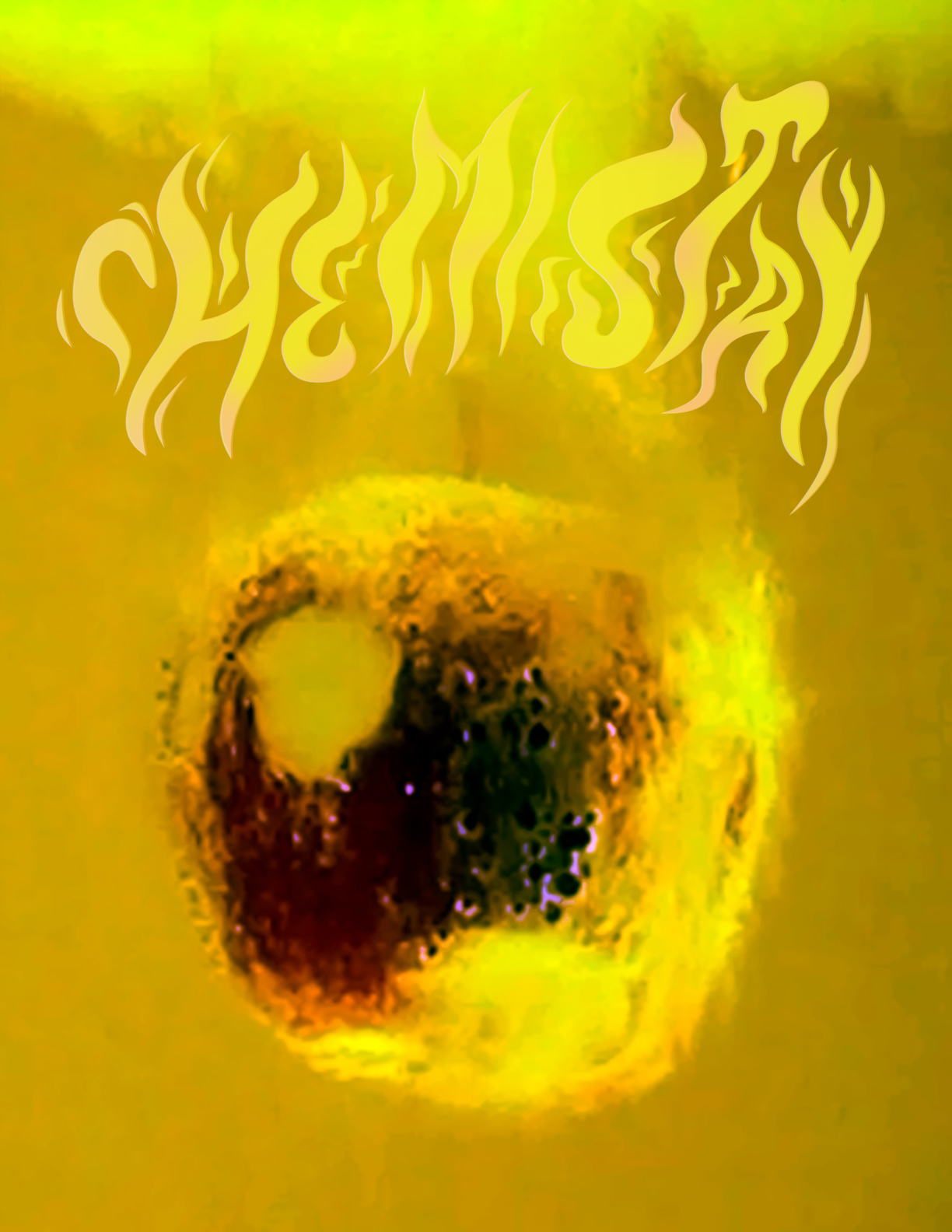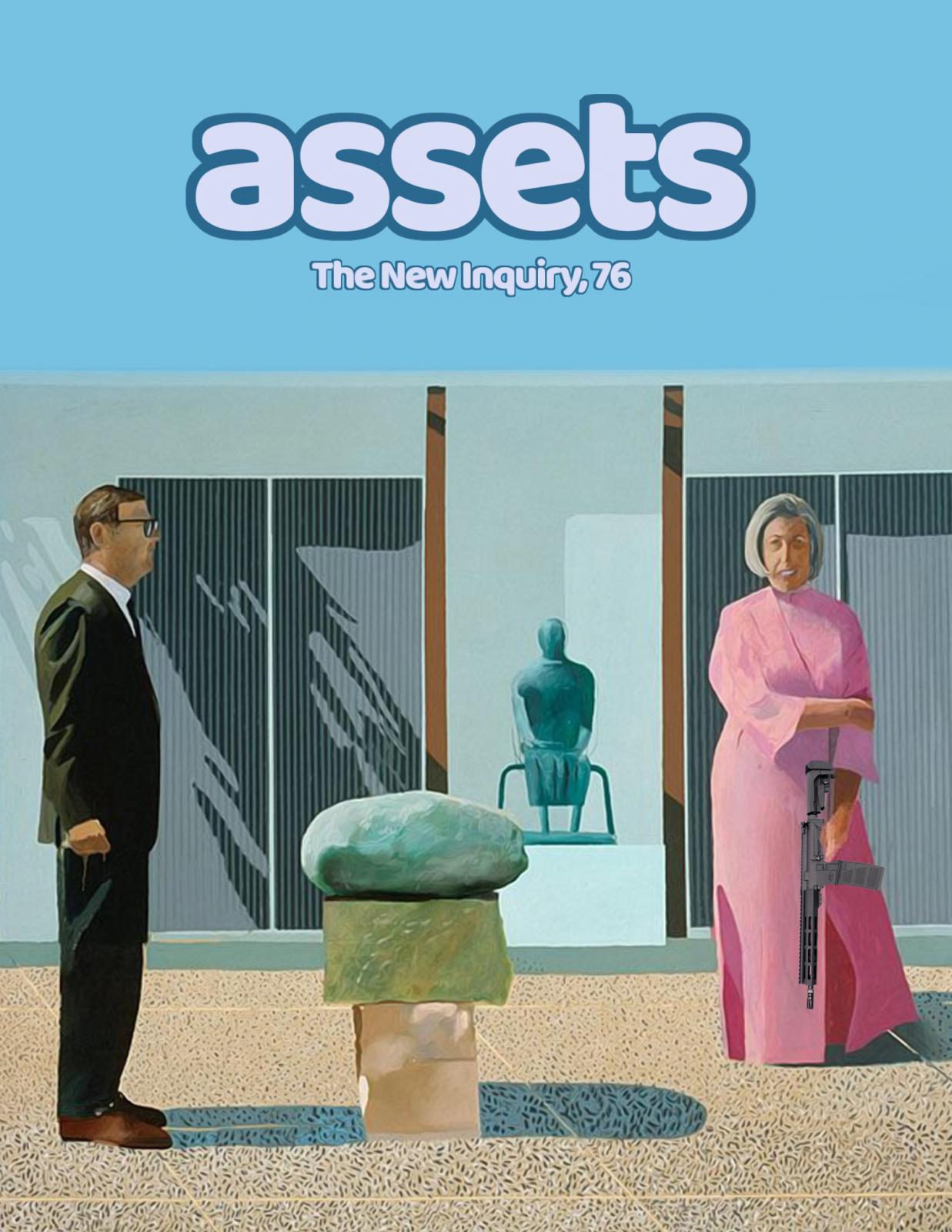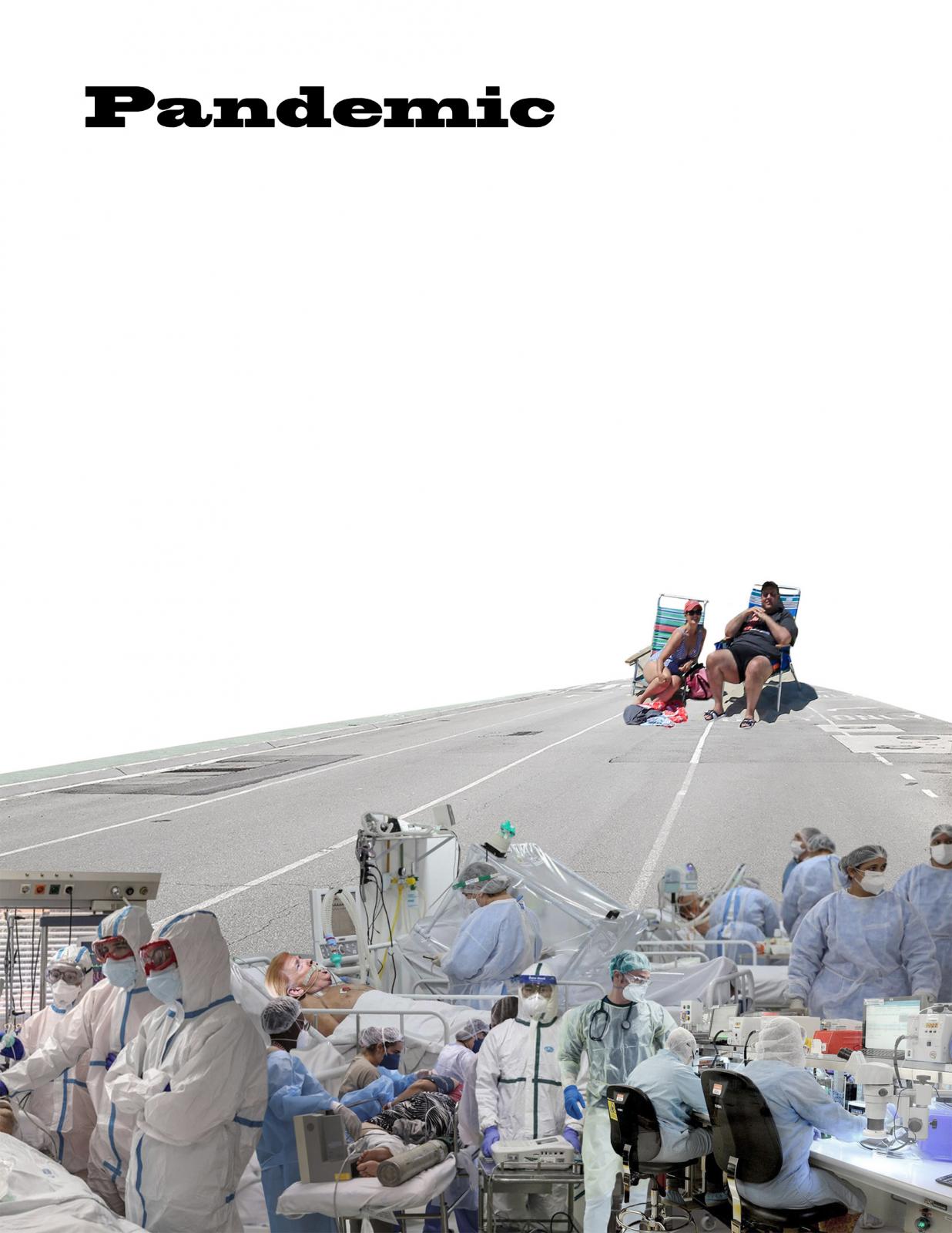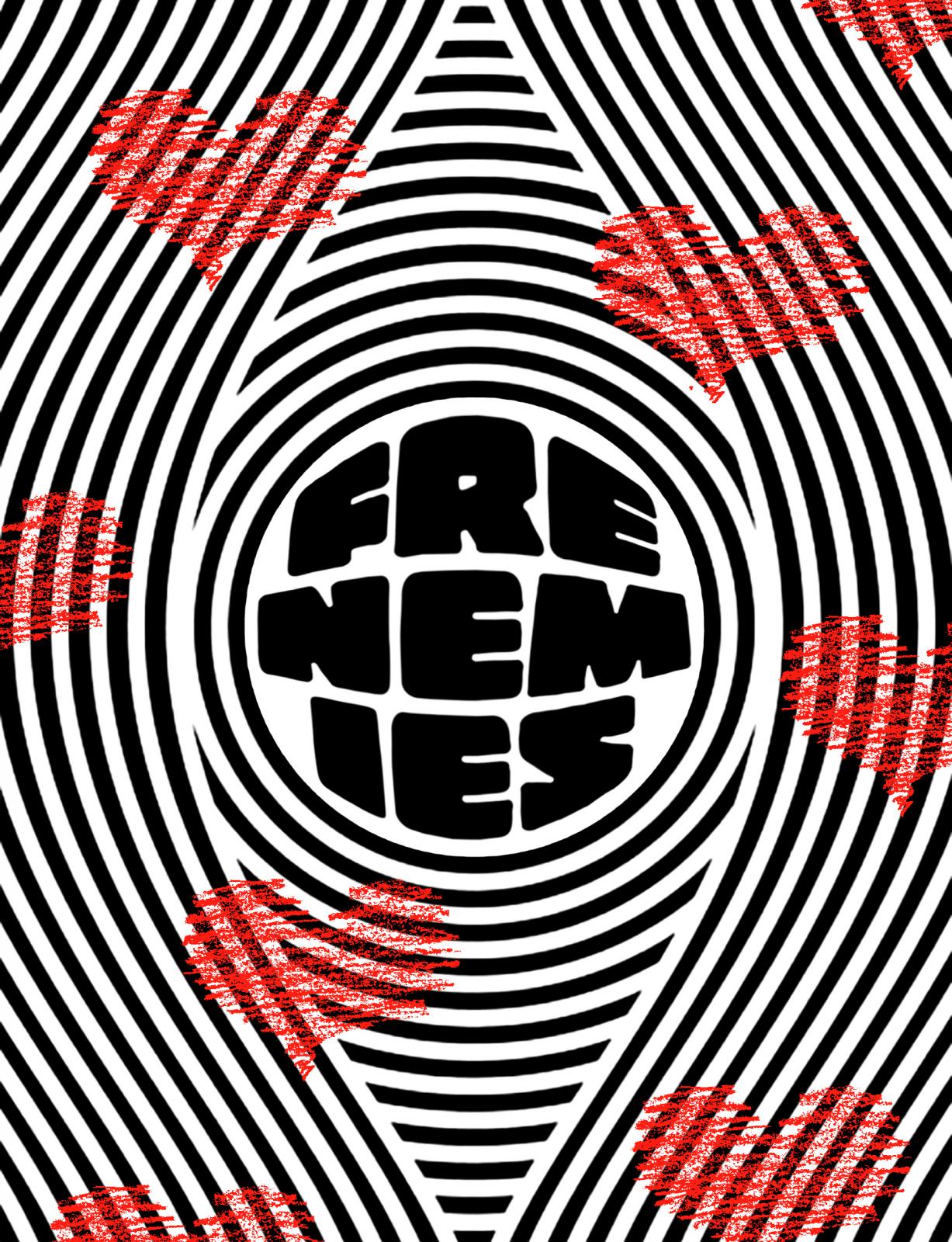Chemistry
Editors' Note
Almost four years after the declaration of a crisis, Flint, Michigan, still does not have clean water.
In 2014, the state of Michigan switched Flint’s water supply from Lake Huron to the Flint River, exposing its residents to lead contamination. The lethal switch was first christened as a cost-cutting initiative in a city that is black and poor. Call it what it is: the chemistry between racial capitalism and American governance. After all, it was Governor Rick Snyder who appointed the now former emergency manager Ed Kurtz, who said his job in Flint was "strictly finance" and "did not include ensuring safe drinking water.” If, in 2016, when President Barack Obama drank filtered water from Flint’s taps to prove its safety, the optics of moralist propaganda made you sick to your stomach, call that good chemistry.
For our Chemistry issue, our contributors explore the complex interactions between matter and life, how things change and how things stay the same.
Since everyday life is hard enough, in her essay “Crushed…,” Tiana Reid urges you to fall harder. She writes, “To say ‘I have a crush’ is to feel forced upon, a reminder of dispossession, yes, but also a small glimpse of possibility, that alchemical feeling of vitality so foolishly powerful that I live for it.”
When’s the last time you felt that way on a dating app? Romance is gamified, monetized, instant, but also potentially endless (as long as you keep paying for it), argues Ana Cecilia Alvarez in “Matchmaking.” The author, who trained as a professional matchmaker, learned that “you never wanted the client to fall in love, just to fall in love with the service.”
In an effort to destabilize white women’s contemporary narratives around sexual power, Hiji Nam interviewed Grace M. Cho, associate professor of sociology, anthropology, and women’s studies at the City University of New York, College of Staten Island. Cho deconstructs the term “fetish” as a narrative to describe the sexual labor of Korean women during the Korean War: “If we think about a racial fetish as something that’s rooted in historical trauma, or that carries forth traces of historical trauma, then we’re talking about the merging of desire and trauma.”
Responses to all kinds of trauma are not at all uniform. Niko Maragos writes, “Laziness, indolence, sloth are figured as the refusal to endure the pain required to escape poverty, according to this anti-working-class narrative.” Riffing on Elaine Scarry’s book The Body in Pain: The Making and Unmaking of the World, the essay “The Body in Painlessness” puts the opioid crisis in a historical context and argues that collective attention to pain and embodiment can make us rebel.
If pain should have a renewed place in social movements, what room is there for pleasure? Adapting an excerpt from Joyful Militancy: Building Thriving Resistance in Toxic Times (AK Press, 2017), carla bergman and Nick Montgomery consider how rigidity kills creative transformation and radical change. So much pleasure and power is lost when everyone is trying to be the perfect political subject: “When politics circulates in a world dominated by hypervisibility and rigidity, there is a huge swath of things that do not count, and can never count: the incredible things that people do when nobody is looking, the ways that people support and care for each other quietly and without recognition, the hesitations and stammerings that come through the encounter with other ways of living and fighting, all the acts of resistance and sabotage that remain secret, the slow transformations that take years or decades, and all of the ineffable movements and struggles and projects that can never be fully captured in words or displayed publicly.”
In another critique of political appearances, Bobby London’s essay “Hurt People” explores the often too flimsy relation between political labels and political action. In the end, London states that “revolution is about tearing down not just the hierarchical systems that control us but those within ourselves.”
It’s a mode of self-critique that Stuart Hall knew well. Anthropology professor David Scott emphasizes how the late scholar modeled what it means to be a “listening self,” a mode that sits with critique but does not reduce itself to it, a mode that is generous, receptive, and attuned to the other.
It is worth imagining a world where we listen to the relation between nonhuman and human animals, in their differences, similarities, and plurality. In “Like a Dog,” Jacob Bacharach argues that even if Shakespeare hated dogs, they are Shakespearean, effortful, and unknowable. “A dog is her own character, self-created in each moment without any obvious intention, at once reflective of her audience and entirely self-contained, clearly the product in some fashion of a human hand, and yet so seemingly without an authorial inventor.”
You’ve heard it before—the watered down Audre Lorde—that skin care is self-care and self-care is an “act of political warfare.” This is not a metaphor. Exploring the popularity of Korean cosmetics, also known as K-beauty, in America, Sophia Cross links the U.S. imperial military presence in Korea and worldwide to skin-care regimes. Cross writes that “the endless war, in all its iterations around the globe, is a naked resource-management tool with increasingly flimsy justifications for the ultimate goal of ensuring U.S. market access to anything, anywhere, at any time; victory, then, means continuing to fight in perpetuity.”
In an intimate meditation on the long-term bonds between the military and industry, Kelsey Atherton tells the story of how nukes live among us. While museums and the entertainment industry suggest nuclear weapons are a far-off power controlled by terrorists, nuclear stewardship is in fact about reckoning with the “human cost of creating maintaining, and using” massive amounts of nuclear weapons.
An attention to chemistry requires an attention to complicitly. Victor Frankenstein, the scientist who usurps women’s reproductive capacity, does not give his monster a name, but chemistry demands that we confront new combinations and structures. We must name the monsters within, and claim the monstrosities we have had a hand in creating.
Featuring
-
Editors’ Note, Vol. 67: Chemistry
-
Crushed…
-
Matchmaking
-
Yellow Fever
-
Warcare Industries
-
Our Nukes, Ourselves
-
The Body in Painlessness
-
Hurt People
-
The Stifling Air of Rigid Radicalism
-
The Context of Intellectual Friendship
-
Like a Dog





